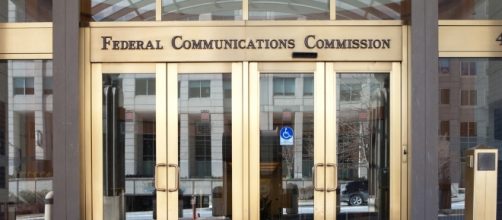Over the past week, the U.S. Congress has worked to overturn internet privacy rights of consumers. The Senate has voted 215-205 to repeal regulations that require an Internet Service Provider (ISP) to obtain permission from their customers before selling their data. On Tuesday, the House of Representative followed suit. They too have now repealed sanctions set out by the Federal Communications Commission (FCC). The official termination of FCC privacy rules relies on the final decision of the President and Trump is anticipated to sign the order.
It is a successful win for ISPs that have debated the regulation would leave them disadvantaged compared to Facebook and Google.
Those two are regulated by the Federal Trade Commission (FTC). Their requirements are less strenuous because of that. The U.S. Congress approving the regulation repeal, however, is a loss for privacy advocates. They fought for the regulation to be on the FCC instead of the FTC.
FCC versus FTC
The FTC handled all concerns related to internet privacy up until February 2015. In that same time, the FCC recognized ISPs as common services of communication. The FCC's actions to do this removed the FTC’s ability to provide ISP privacy protection to consumers.
ISPs retrieve large amounts of personal information from the websites people visit. The regulations issued by the FCC would have required ISPs to request that subscriber opt-in before selling their information.
The Republican Party argues that the FCC overstepped its boundaries. They believe it’s up to the FTC to regulate privacy. Republican Representative Marsha Blackburn said allowing the FCC and FTC to post different regulations could, "create confusion within the Internet ecosystem and end up harming consumers."
If the FCC provisions under the Congressional Review Act get overturned, lawmakers successfully cease the FCC from ever restoring these regulations in the future.
The future of consumer privacy
The repeal, which has not yet gone into effect, won't require Internet Service Providers to get permission before compiling consumer personal information into shared data. Providers will also not be required to tell customers what information they collected exactly and whom they shared their data with.
The privacy revision supposedly has intentions to give consumers more voice over their personal online information at any given time.
The situation surrounding consumer protection isn’t an issue resulting from a Congressional overturn. This whole situation happened because of ISPs becoming common telecommunication companies since 2015. The matter at hand now, per the FTC, is FCC-created. Therefore, it must be resolved by the FCC and/or Congress.
Evidence shows that many broadband providers already disclose their customer’s information to advertisers. They offer the choice to opt-in or opt-out but consumers are often unaware of data collection even taking place.
People opposing the privacy rules debate that new regulations would become burdens to internet service providers while giving companies like Google and Facebook the opportunity to collect user data without permission.
On Tuesday, the Trump administration announced it support in bringing down the Commission’s sanction entitled, Protecting the Privacy of Customers of Broadband and Other Telecommunication Services. The White House said, “The rule departs from the technology-neutral framework for online privacy administered by the Federal Trade Commission. This results in rules that apply very different regulatory regimes based on the identity of the online actor.”
Per Congress as of Tuesday, the future of consumers' rights to privacy now lies in the hands of the president.

